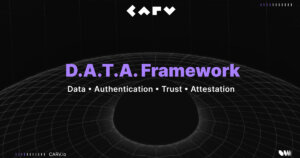 Shopify CEO asks crypto community about how to integrate DeFi
Shopify CEO asks crypto community about how to integrate DeFi Shopify CEO asks crypto community about how to integrate DeFi
From celebrities to movie stars to technology geeks, everyone wants to get in on the DeFi action.

Cover art/illustration via CryptoSlate. Image includes combined content which may include AI-generated content.
The DeFi market is steadily heating up as yield farms, NFTs, and other non-custodian financial services gain popularity among mainstream audiences. And tech CEOs want in on the action.
Enter Shopify yields?
Last week saw Shopify CEO Tobi Lutke turn to crypto circles on Twitter to ask proponents about how the e-commerce technology site could help build in DeFi. “What are the commerce-related opportunities that you are most excited about? What role do you want Shopify to play?” Lutke tweeted.
Hey #DeFi Twitter?. What are the commerce related opportunities that you are most excited about? What role do you want Shopify to play?
— Tobi Lutke ???? (@tobi) April 2, 2021
Answers ranged from memes to serious replies suggesting the interplay of cryptocurrencies and working capital loans for small businesses and entrepreneurs. “An equivalent of PayPal or Stripe working capital loans, but orchestrated thru Shopify and via existing Defi loan providers like Aave,” suggested Brian Krogsgard, host of crypto podcast UpOnly.
As an example of something I think could be amazing… an equivalent of PayPal or Stripe working capital loans, but orchestrated thru Shopify and via existing Defi loan providers like @AaveAave. Would empower productive loans in a non-fully collateralized manner but narrow focus.
— Ledger Status (@ledgerstatus) April 3, 2021
Terra founder Do Kwon suggested taking the yield route for benefiting users. “(A) 20% yield on the settlement buffer as it is waiting to be distributed to merchant partners? Earnings can be split merchant / Shopify to align incentives,” he said.
Other popular responses included suggestions of having merchants commit a set percentage of all Shopify-verified revenue to an Ethereum address they controlled, which in turn, could be staked to generate yield.
NFTs, Bitcoin, and why not to DeFi
NFTs, or non-fungible tokens, were not far behind in the mentions. The formerly niche crypto sector has grown into a $22 billion behemoth over the past months, and proponents suggested merchants could ‘airdrop’ their store-focused NFTs to buyers and other users.
Some users even mentioned the use of Bitcoin on Shopify services as well. Stacks CEO Muneeb Ali said the e-commerce business could allow users to earn Bitcoin on their purchases. “There are BTC yielding products in DeFi now,” he said.
Meanwhile, Lutke’s tweet did attract some criticism as well. Tom Kineshanko, founder of tokenized crypto fund Protos Asset Management, said a centralized company trying to integrate DeFi services felt “kinda wrong.”
“Gut reaction: ‘I (love) Shopify but it feels kinda wrong a centralized co to touch my precious decentralized DeFi’ – please think about the wonders & inequality reducing the potential of decentralization as you begin,” Kineshanko said.
Lutke, however, was quick to respond to that: “Shopify is a product of pre-crypto times and spiritually aligned with decentralizing opportunity,” he noted.
Shopify is a product of pre-crypto times and spiritually aligned with decentralizing opportunity. Over a million businesses use us around the world.
— Tobi Lutke ???? (@tobi) April 2, 2021








 Elon Musk
Elon Musk 



















































































 AAVE
AAVE